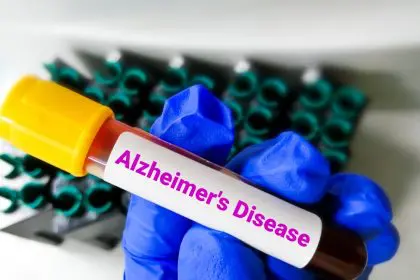The next time you find yourself fighting to stay awake during the day, it might be more than just a case of the afternoon slump. Scientists have discovered that excessive daytime sleepiness could be an early warning sign of potential cognitive decline, particularly in adults over 65.
A groundbreaking study from the Albert Einstein College of Medicine has revealed that what many dismiss as normal aging might actually be early indicators of a condition called motoric cognitive risk syndrome (MCR). This condition, which affects thousands of older adults, often goes unnoticed until significant cognitive changes have already occurred.
The surprising link between sleep and brain health
Your brain isn’t just resting when you sleep – it’s actually performing crucial maintenance work. During proper sleep, your brain clears out toxic waste, strengthens memories, and repairs neural pathways. When these processes are disrupted by poor sleep, it can lead to a cascade of cognitive issues.
The research team studied 445 adults with an average age of 76, tracking their sleep patterns and cognitive function over several years. The results were striking: 177 participants were classified as poor sleepers, with 42 showing immediate signs of MCR. Even more concerning, 36 additional participants developed MCR during the study period.
5 warning signs you shouldn’t ignore
- Slower walking pace: If you notice yourself walking more slowly than usual, it might not just be about physical fitness. Research shows a direct connection between walking speed and brain health.
- Memory hiccups: Struggling to remember where you placed your keys or forgetting appointments might seem normal, but when combined with sleep issues, it could signal early cognitive changes.
- Delayed mental processing: Taking longer to understand or respond to questions and conversations can be an early indicator of cognitive decline, especially when accompanied by daytime sleepiness.
- Reduced daily activities: Finding yourself less interested in activities you once enjoyed might be more than just a mood change – it could be related to sleep-induced cognitive issues.
- Constant fatigue: While everyone feels tired occasionally, persistent daytime sleepiness despite adequate nighttime sleep should never be ignored.
How to protect your brain starting tonight
Sleep experts recommend several strategies to improve both sleep quality and cognitive function. Creating a consistent sleep schedule helps regulate your body’s internal clock, while maintaining a cool, dark, and quiet bedroom environment promotes better sleep quality.
The food you eat plays a crucial role too. Brain-boosting foods like salmon, walnuts, and berries provide essential nutrients that support cognitive function. Dark chocolate, green leafy vegetables, and omega-rich seeds also enhance brain performance. Staying hydrated and limiting caffeine and alcohol intake, especially in the evening, can significantly improve sleep quality.
The exercise-brain connection you need to know
Physical activity isn’t just about staying fit – it’s a powerful tool for maintaining brain health. Regular moderate exercise, like daily walks or swimming, helps improve both sleep quality and cognitive function. Activities that challenge balance and coordination, such as yoga or tai chi, provide additional benefits for brain health.
When to talk to your doctor
While some sleep changes are normal as we age, certain patterns warrant medical attention. If you experience persistent daytime sleepiness along with any of the five warning signs, especially if they affect your daily activities, it’s time to consult a healthcare provider.
Modern medicine offers various approaches to address both sleep issues and cognitive concerns, but early intervention is key. Your doctor can evaluate whether your symptoms might be related to MCR or other conditions that affect sleep and cognition.
Remember, protecting your brain health is a long-term commitment. By paying attention to sleep patterns and taking proactive steps to address any issues, you can help maintain cognitive function and overall well-being as you age.












